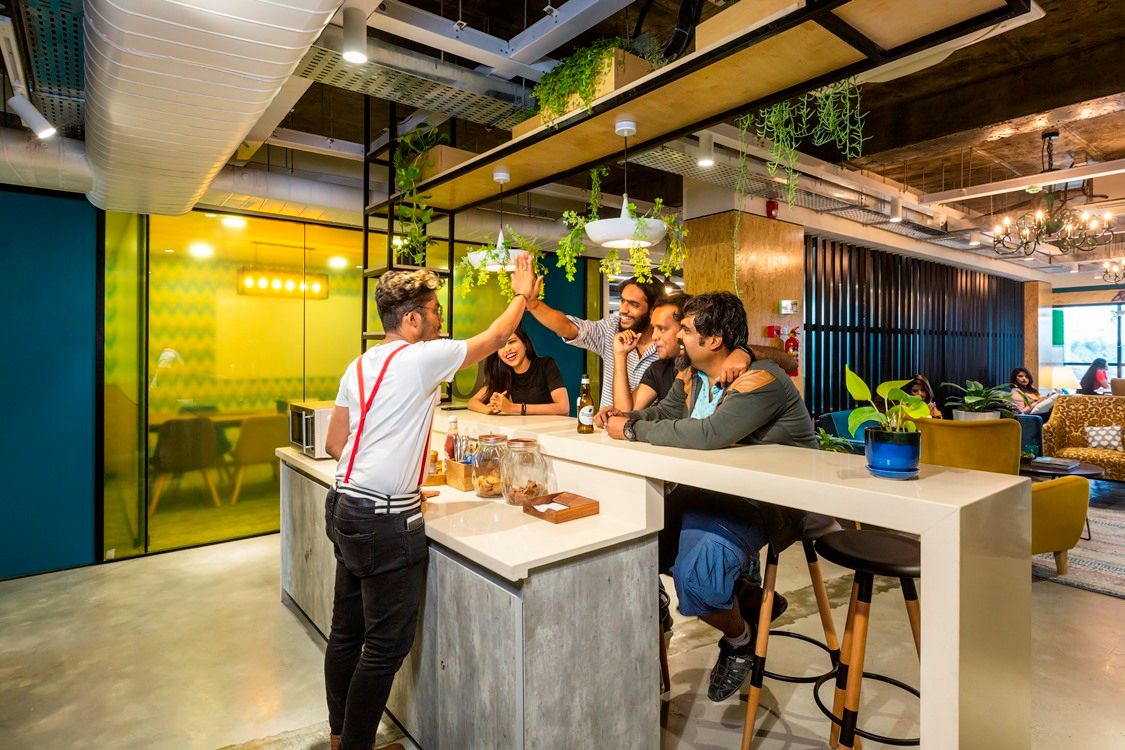Startups have emerged to become a major source of employment in India. Ever since 2018, startups in India have generated about six lakh jobs. In fact, according to data by the Commerce Ministry in the Lok Sabha, startup jobs grew by 14 percent during the pandemic year.
That is, about two lakh jobs were generated by Indian startups in 2021, official data reveals. And with 44 startups entering the unicorn club (companies valued at more than $1 billion) in 2021, there has been a 2x quarter-on-quarter growth in job postings by unicorns.
But, hiring in the Indian startup ecosystem, especially in the engineering and product roles, have started becoming excessively competitive and challenging. As earlier reported by YourStory, companies have been rolling out high pay packages, ESOPs, bonuses, and referral goodies that range from luxurious vacations to shopping vouchers, to attract the right candidates.
Once entrepreneurs are successful in hiring the best of talent, despite being constrained by capital and time, a new dilemma kicks in – How to retain talent?

A report by HR Katha suggests that the attrition rate at Indian startups was between 50 and 80 percent in 2021, while that of traditional or established companies stood at around 20 percent. Despite adopting the finest human resource management practices, Indian startups have been struggling to retain employees, and increasing salaries don’t seem to be the way out of this.
Kanika Agarrwal, Co-founder of machine learning-based investment management startup , says, “Hiring and retaining the right people is the most important skill for a founder.”
For this article on Entrepreneurship 101, we focus on suggestions that will help you retain the right talent to grow your startup.
Strategise compensation
An attractive compensation is not just a cash component. Companies must provide employees with the right mix of cash and equity compensation. This will instil a sense of ownership and trust in the employee towards the startup. At the end of the day, when a candidate gives up on a traditional organisation to join a more volatile one, they should be compensated for the risk.
Additionally, perks like health insurance, food and recreation reimbursements, learning and upskilling budgets, and a transparent feedback mechanism go a long way in retaining employees.

Company culture
Despite the annual bonuses and five-year ESOP plans, employees can be retained based on how they feel every day at a particular workspace. A report by Haiilo suggests that 47 percent of the workforce suggest that company culture is the major reason for them to quit a job.
On the other hand, companies with the ‘best corporate cultures’ reported a 682 percent increase in revenue. Therefore, improving company culture should be at the topmost of any entrepreneur's priority list. Employees should be aligned with the vision and mission of the startup to meaningfully contribute toward its journey to success.
Piyush Jain, Co-founder and CEO at crowdfunding platform , suggests, “The best way to retain employees is to build a world-class culture and a high-performing meritocratic workplace for employees to thrive.”

Focus on individual growth
While focusing on the growth of the company, entrepreneurs should not forget to prioritise the growth of individual employees. A Korn Ferry Survey suggested that in 2018, 33 percent of professionals changed their jobs due to boredom and lack of new challenges.
Kanika says, “A large part of why self-starters move to smaller organisations is because they get a role with more responsibility and independence.” Therefore, it is essential for entrepreneurs to ensure that employees remain motivated, assigned important managerial tasks, and get to indulge in upskilling and improving their competency skills.
Recognition
Employees want to be acknowledged for the work that they put into helping an entrepreneur fulfil their dreams of building a successful business. The more they are valued, the longer they will stay in a company. Therefore, entrepreneurs should work towards building a culture where employees feel seen and appreciated.
Easy ways to recognise employees include programmes like ‘Employee of the Month’ awards, promoting employees who perform well on social media, and providing recognition through monetary incentives or gifts.
Rewards and recognition motivate employees to do better, and provide them with a sense of ownership, accountability, and belonging.

Prioritise mental health
Mental and emotional connections form an integral part of employee engagement. According to Harvard Business Review, employees who have managers that are not good at communicating are 23 percent more likely to experience a decline in their mental health. Another recent report by Indeed suggests that 52 percent of employees suggest feeling burned out.
A few initiatives to prevent burnout include allowing employees to avail mental health day-offs, offering flexible work hours, and indulging in employee engagement activities.
Policies in place
YourStory asked entrepreneurs Piyush and Kanika about the policies and mechanisms they have in place in their respective organisations to retain employees. Here’s what they said:
ImpactGuru:
- ESOPs for employees across all levels
- Birthday/maternity/paternity leaves
- Buddy-mentorship programmes
- 360-employee feedback policy
- Cross-department pivots: if a tele-caller desires to pivot their career in graphic designing, they can do so within the organisation itself
- Implementation of key values: Unity, hope, oneness, and gratitude.
Upside AI:
- ESOPs for every employee
- Flat structure and transparent communication
- Weekly team meetings for the 15-member team to discuss everybody’s work
To read other articles on Entrepreneurship 101, click here.
Edited by Saheli Sen Gupta



